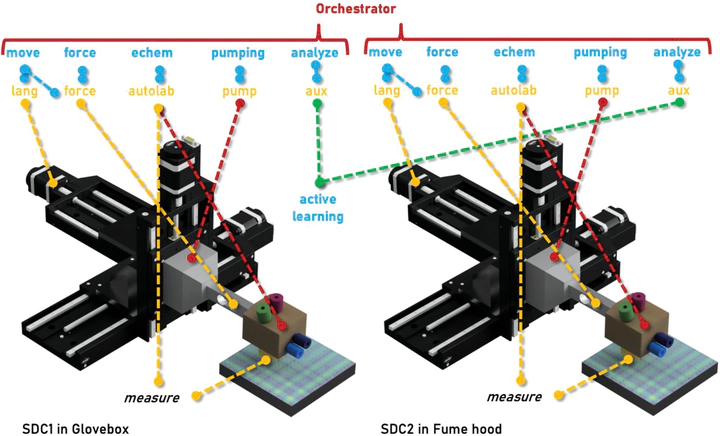Enabling Modular Autonomous Feedback-Loops in Materials Science through Hierarchical Experimental Laboratory Automation and Orchestration
 Image credit: onlinelibrary.wiley
Image credit: onlinelibrary.wileyAbstract
Materials acceleration platforms (MAPs) operate on the paradigm of integrating combinatorial synthesis, high-throughput characterization, automatic analysis, and machine learning. Within a MAP, one or multiple autonomous feedback loops may aim to optimize materials for certain functional properties or to generate new insights. The scope of a given experiment campaign is defined by the range of experiment and analysis actions that are integrated into the experiment framework. Herein, the authors present a method for integrating many actions within a hierarchical experimental laboratory automation and orchestration (HELAO) framework. They demonstrate the capability of orchestrating distributed research instruments that can incorporate data from experiments, simulations, and databases. HELAO interfaces laboratory hardware and software distributed across several computers and operating systems for executing experiments, data analysis, provenance tracking, and autonomous planning. Parallelization is an effective approach for accelerating knowledge generation provided that multiple instruments can be effectively coordinated, which the authors demonstrate with parallel electrochemistry experiments orchestrated by HELAO. Efficient implementation of autonomous research strategies requires device sharing, asynchronous multithreading, and full integration of data management in experimental orchestration, which to the best of the authors’ knowledge, is demonstrated for the first time herein.